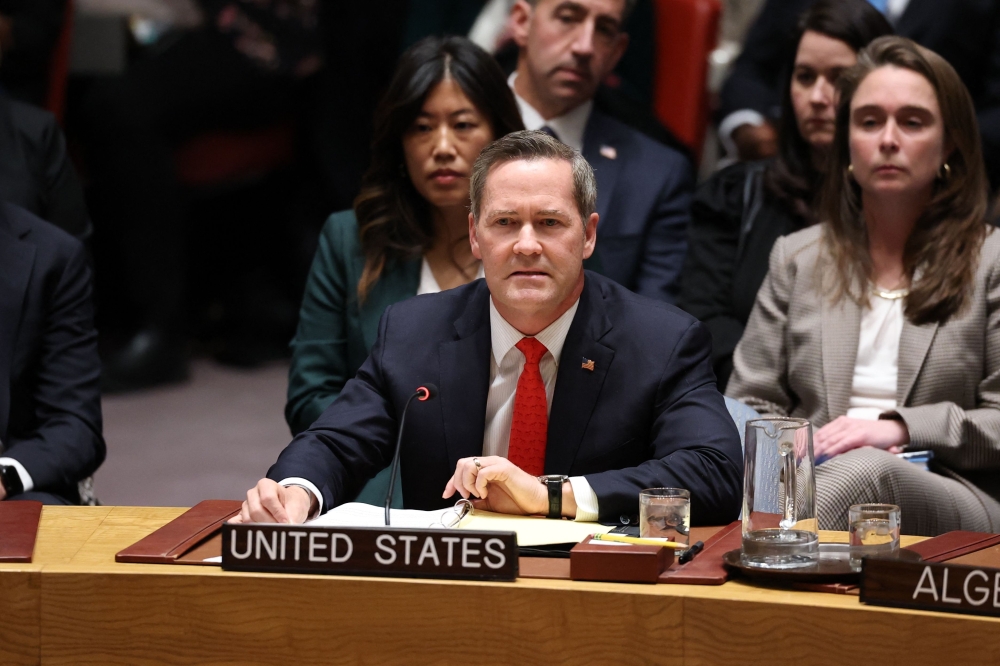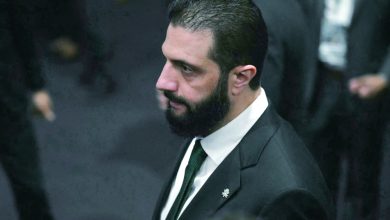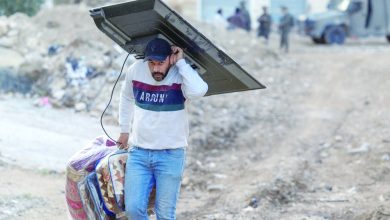UNSC adopts Gaza Peace Plan

The United Nations Security Council on Monday approved President Donald Trump’s peace plan for the Gaza Strip, a breakthrough that provides a legal UN mandate for the administration’s vision of how to move past the ceasefire and rebuild war-ravaged Gaza after two years of war.
The council’s vote was also a major diplomatic victory for the Trump administration. For the past two years, as the conflict between Israel and Hamas has raged, the United States has been isolated at the United Nations over its support for Israel.
The US resolution calls for an International Stabilization Force to enter, demilitarize, and govern Gaza. The proposal, which contained Trump’s 20-point ceasefire plan, also envisions a “Board of Peace” to oversee the peace plan, though it does not clarify the composition of the board.
The resolution passed with 13 votes in favor and zero votes against. Russia and China, either of which could have vetoed it, abstained, apparently swayed by the support for the resolution from several Arab and Muslim nations.
Mike Waltz, the U.S. ambassador to the United Nations, who addressed the council before the vote, called Gaza “hell on earth” and held up a copy of the resolution, describing it as “a lifeline.” After the vote, Waltz thanked the council for “joining us in charting a new course for Israelis, Palestinians and all the people in the region alike.”
Security Council resolutions are considered legally binding international law, and although the council does not have a mechanism for enforcing such resolutions, it can take measures to punish violators with penalties such as sanctions.
In post on Truth Social, Trump wrote: “Congratulations to the World on the incredible Vote of the United Nations Security Council, just moments ago, acknowledging and endorsing the BOARD OF PEACE, which will be chaired by me, and include the most powerful and respected Leaders throughout the World.”
He thanked various countries, including Russia and China, and said the vote “will lead to further Peace all over the World.”
Still, the path forward is plagued by many uncertainties with Israeli strikes continuing in Gaza and outbreaks of violence erupting in the West Bank. Among the next steps would be naming members of the Board of Peace, the body in charge of overseeing the transition in Gaza, and clarifying under whose authority the stabilization forces would operate.
The resolution says that if the Palestinian Authority, which partly governs the West Bank, undergoes reforms and the redevelopment of the shattered Gaza Strip advances, the conditions “may finally be in place for a credible pathway to Palestinian self-determination and statehood.”
Algeria’s ambassador to the United Nations, Amar Bendjama, the only Arab member of the council and who was negotiating on behalf of the United Nations’ Arab Group, thanked Trump for his personal engagement in bringing the conflict in Gaza to the end. But he said the aspirations of Palestinians for a state should not be overlooked.
“Genuine peace in the Middle East cannot be achieved without justice, justice for the Palestinian people, who have waited for decades for the creation of their independent state,” he said.
Many council members, including France, Guyana, Pakistan, Slovenia and Somalia, had issues with the fact that the resolution did not include clear language on Palestinian statehood. But they said that they had endorsed the proposal to support the political momentum, prevent the resurgence of violence and allow much-needed humanitarian aid to flow into the enclave. They reiterated that the territorial integrity of Gaza must remain intact, and that lasting peace must be rooted in a two-state solution.
The language in the resolution about Palestinian statehood had drawn objections from Israel, with Prime Minister Benjamin Netanyahu saying Sunday that “our opposition to a Palestinian state in any territory has not changed.”
Among the challenges the International Stabilization Force will face is how to confront Hamas in Gaza. The resolution states that the force would be responsible for destroying military infrastructure in Gaza and decommissioning the militant groups’ weapons.
The Trump administration sought the mandate at the United Nations because those countries said they needed Security Council authorization so that their troops would not be viewed by their own populations as occupiers in Gaza.
The resolution went through multiple revisions in negotiations last week and faced significant pushback from many council members, including Europeans, who demanded more clarity on Palestinian statehood and the Board of Peace.
At one point late last week, objections by China and Russia, which typically coordinate their positions around resolutions by the United States, threatened to derail the U.S. resolution altogether. Russia drafted its own 10-point counterresolution on Gaza, which called outright for Palestinian statehood and said the Israeli-occupied West Bank and Gaza should be joined as a state under the Palestinian Authority.
After the vote, Russia and China said they had abstained from the vote because the resolution lacked clarity on key components and that the United States had not responded to multiple demands to provide more details on the Board of Peace and a two-state solution, and that Palestinian self-determination for postwar governance of the enclave was not fully reflected.
“Today is a sorrowful day for the Security Council,” Russia’s ambassador to the United Nations, Vasily Nebenzya, told the council. He called the resolution “yet another pig in a poke” — something obtained without careful inspection first — and said the United States had gotten it through by “twisting the arms” of members of the Security Council.
The United States made minimal compromises on the resolution and instead rallied the support of the Arab and Muslim countries to pressure Russia and China not to be seen as obstacles to a breakthrough in Gaza. Diplomats said that Waltz had also warned the countries during negotiations that if the resolution failed, the ceasefire in Gaza would collapse.
The stakes were high for all the major actors. Palestinians want the suffering and the war to end. Israelis want Hamas disarmed. And the United States hoped to be the major player bringing peace to the region.
The U.N. secretary-general, António Guterres, welcomed the resolution, saying in a statement that it was an important step, and he encouraged all parties to abide by it. “It is essential now to translate the diplomatic momentum into concrete and urgently needed steps on the ground,” he said
This article originally appeared in The New York Times.


